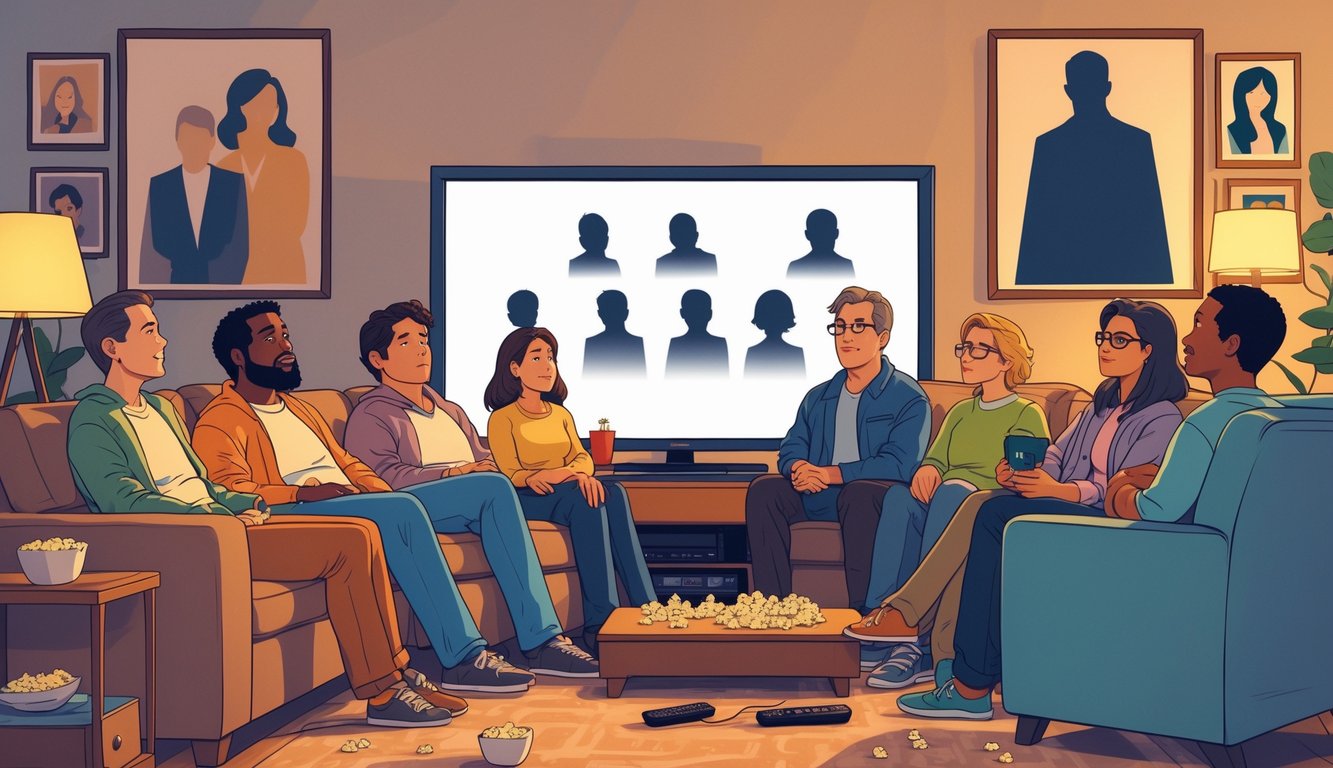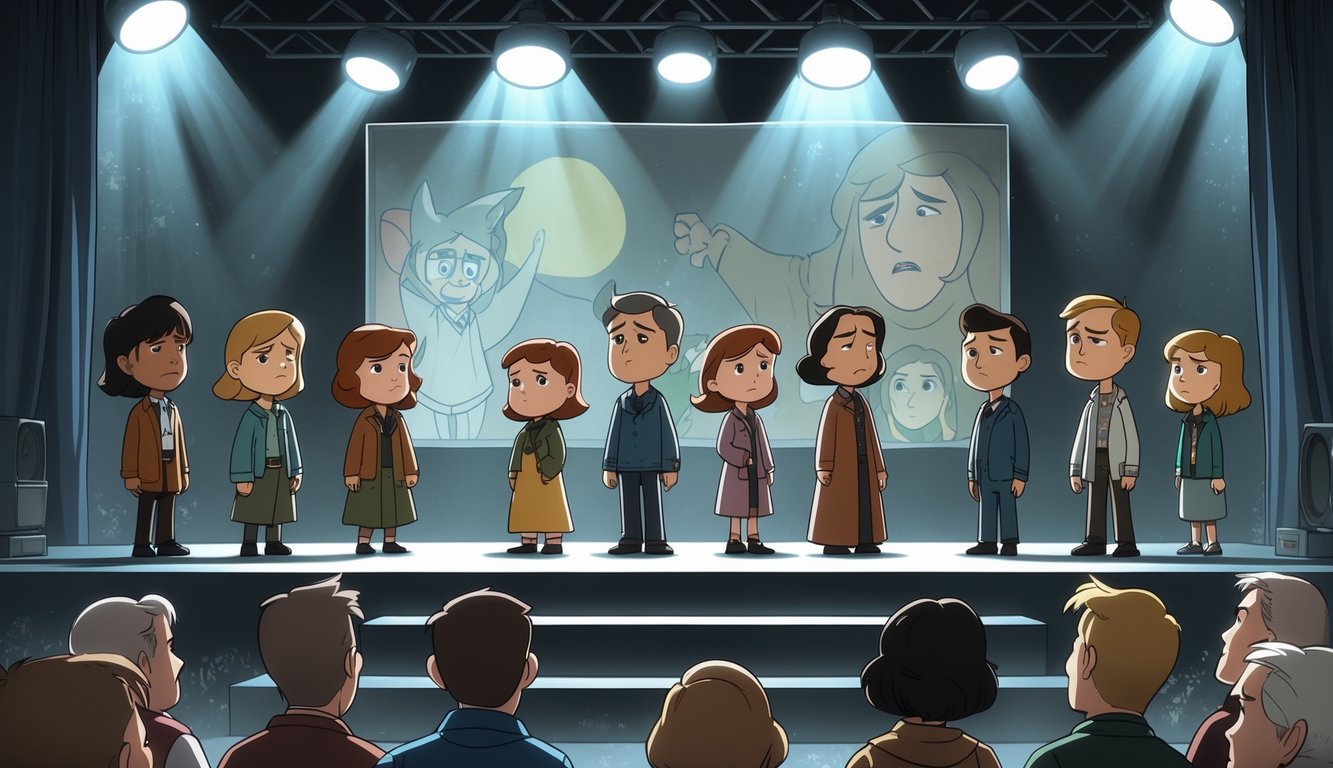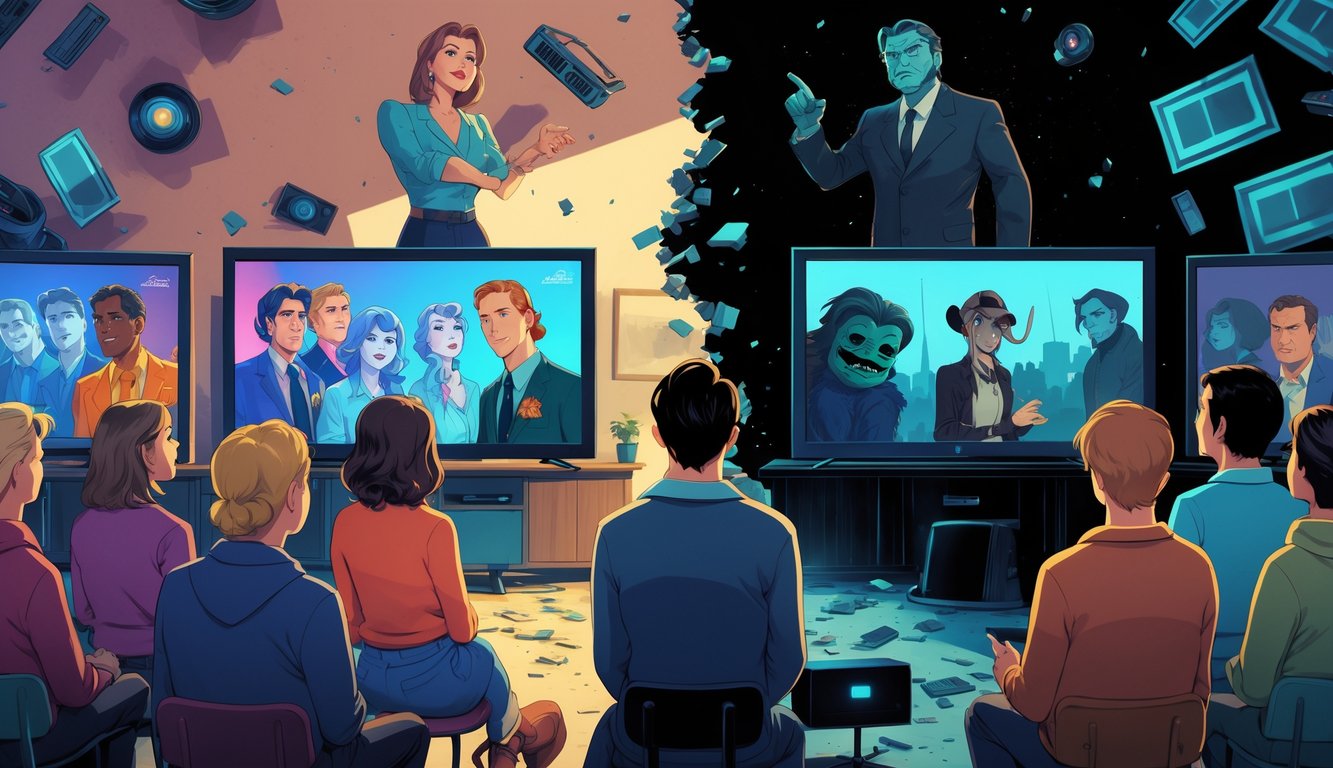
AfterMASH and Fading Drama
Did anyone really want to see army doctors outside the war zone? AfterMASH tried anyway. Col. Potter, Klinger, Father Mulcahy—they’re in a Missouri hospital now, and it’s just… dull. I went to a viewing party once and someone booed when Klinger showed up. The switch from dark, sharp MASH* humor to bland hospital paperwork? Not great.
They dragged out all the old props and catchphrases. Nobody cared. The first season did okay, but by season two, the audience had vanished. Critics hated the boring stories, and fans bailed. Nostalgia couldn’t save it. The original was legendary; this, not so much.
The Tortellis: Comedy Without Chemistry
Oh man, The Tortellis. Nick Tortelli from Cheers gets his own show, and it’s just… painful. If you ever wondered why Cheers worked, watch this for ten minutes and you’ll get it—it didn’t. Annette and Nick bumble through “zany” dialogue, but the audience isn’t laughing. Neither was I.
Best (worst?) moment: a pizza oven disaster that was supposed to be hilarious, but just made me cringe. A friend of mine who writes about sitcoms still calls this “comedy without chemistry.” Vegas, family drama, whatever—it never clicked. Even NBC gave up halfway through. Spin-off disaster lists always mention The Tortellis. For good reason.
When Beloved Characters Couldn’t Recapture Magic

It’s honestly depressing to watch once-great characters get dragged into weird jobs, new genres, or just mope around in darker lighting, acting like they’re suddenly philosophers. The magic’s gone, and no amount of nostalgia can fix a bad plot twist or zero chemistry.
Baywatch Nights: Reinventing the Genre
David Hasselhoff in a trench coat—who signed off on that? The lifeguards from Baywatch become night-time private eyes. My brain still refuses to accept it. Ratings dropped fast—like, double digits. Then season two went full supernatural. Aliens. In Los Angeles. I remember everyone on my street just laughing at it. Even Variety called it a mess. How do you go from slow-mo beach rescues to knockoff X-Files in one season?
Hasselhoff played it straight, like lifeguard skills totally help you hunt demons. I mostly remember the product placements and those embarrassing leather jackets. If there was any “magic” left, it drowned in the wardrobe department.
Angel: A Mixed Blessing for Buffy Fans
So, Angel. They took Buffy’s brooding boyfriend and made him a private detective in L.A. (again with the detectives). The tone got dark, the fans split in half. Entertainment Weekly trashed the pilot for feeling like a bad pulp novel. Did we want brooding or action? Cordelia’s jokes fell flat, and even Joss Whedon seemed unsure what he was aiming for.
Some fans loved the weird arcs—Darla’s comeback was actually cool, I’ll admit—but the lore got so tangled I just wanted Giles to show up and explain everything. By season three, I was mostly hate-watching. Spin-offs sometimes miss the mark, and even beloved characters can’t save a show nobody’s excited to rewatch.
The Challenges of Reimagining Classic Storytelling

I can’t stop thinking about the weird gap between clinging to old TV comfort and these awkward leaps into “new” territory that never really fits. People want the familiar, but also something fresh, and honestly? That’s a nearly impossible ask. Maybe that’s why so many spin-offs crash and burn. Or maybe we all just need to move on.
Star Trek: The Next Generation and Exploration
Nobody ever really warns you that when Star Trek suddenly slams the brakes (or, I guess, hits warp 9 in reverse?) and swaps out gritty Klingon brawls for endless conference room debates, half the fans start throwing tantrums online and the other half just wander off to binge Days of Our Lives. My cousin once gave me a Picard action figure—snapped off at the elbow before dinner. Maybe that’s a metaphor. Or maybe just cheap plastic.
Gene Roddenberry apparently couldn’t stop talking about “evolved humanity,” but all I remember is people on Usenet losing their minds over the Enterprise-D’s wall-to-wall carpet. Like, was everyone secretly allergic to beige? The show swapped out space westerns for philosophical lectures, which, sure, sounds cool in theory. But ask any random person who watched in 1988 and you’ll get a mishmash of opinions, most of them circling back to “too many meetings, not enough phasers.” I mean, was anyone actually craving Shakespeare in space mashed up with a U.N. subcommittee? Because that’s what we got, and the tonal whiplash still gives me a headache.
Scroll through any think piece on reboots—seriously, it’s a genre now—everyone swears new takes just mess with the DNA and make old fans grumpy. I’ve watched reruns with engineers, and every single time, someone moans about the missing technobabble. Roddenberry probably had a grand vision, but did anyone ever agree on what it was? Doubtful.



